How to Develop Critical Thinking Skills for Success
Date
Jun 28, 24
Reading Time
8 minutes
Category
Other
- Introduction
- Understanding Critical Thinking Skills
- Importance of Critical Thinking Skills
- How to Develop Critical Thinking Skills
- Conclusion
- Frequently Asked Questions (FAQs)
Table of content

Introduction
Critical Thinking- Whew!! What a mind-numbing thing, huh!!
When we think about critical thinking, we believe it is reserved for rocket scientists and brain surgeons. This is absolutely not true.
Critical thinking is essential for everyone. It helps you tackle problems and complex projects and make intelligent life choices.
In this article, we will discuss all aspects of critical thinking: its importance, its components, and how to develop advanced critical thinking skills.
Are you sleepy yet? Well, grab a coffee and brace yourself for a journey into critical thinking where your mindset will broaden, your thinking sharpened, and secrets to success will be laid bare before you.
So, let's dig in.
Understanding Critical Thinking Skills
Critical thinking is a systematic way of thinking that analyzes, evaluates, and interprets information for better judgment and decision-making.
Critical thinking is going beyond your first thoughts, being curious, and asking questions like ‘Why ’ and ‘How’. It is making choices based on reason and not emotions.
Critical thinking allows you to look at problems from different perspectives, understand them better, and develop better solutions.
In everyday life, critical thinking skills allow you to better understand financial situations, the political landscape, and policies and make informed decisions about your life.

Critical thinking has the following components.
- Analysis: Analysis is a crucial component of critical thinking skills. It involves breaking down the information into smaller parts and examining them in detail. By breaking a problem into smaller parts, you can uncover hidden insights and the real root cause of the problem. It allows you to identify connections and logical flaws in reasoning and assumptions.
- Interpretation: Interpretation is making sense of and deriving meaning from the information. It involves not just looking at facts but understanding what they mean. For example, when reading a book, instead of just reading the words, you try to see the themes, symbolism, and message the author is trying to convey.
- Evaluation: Evaluation is assessing the relevance of information or data. Evaluation involves checking the credibility of data sources and determining the significance of that information.
- Inference: Inference is drawing logical conclusions based on the relevant information. Connecting dissimilar and different pieces of information to draw a logical cause, conclusion, or prediction is essential to critical thinking skills.
- Communication: The other central part of critical thinking skills is communicating your thought process to different stakeholders and the rationale behind your decisions. Good communication means your ideas are clearly and persuasively communicated to others, supported by evidence and reasoning.
- Problem Solving: Creative problem-solving involves thinking outside the box and looking at problems from different angles. Effective problem-solving consists of understanding different perspectives and experimenting with different strategies to provide the best solution.
Suggested Reading: In Demand Skills
Importance of Critical Thinking Skills
Critical thinking has emerged as a vital part of success in the workplace. According to a survey for 21st-century Century Skills, 74% of surveyed employers rated critical thinking skills as very important.
Research indicates that organizations with employees who excel in critical thinking are more likely to outperform their competitors by 25%. This highlights the impact of critical thinking skills on an organization's success.
Despite its significance, there is a notable challenge in finding workers with advanced critical thinking skills. A report states that 75% of employers struggle to find individuals with critical thinking skills. This shortage indicates the need for companies to recruit people with good critical thinking skills.
During interviews, candidates may be asked to provide critical thinking skills examples to demonstrate their analytical thinking and decision-making processes.
In today's fast-paced and evolving business ecosystem, critical thinking is crucial for navigating complex situations, driving innovation, and making sound decisions.
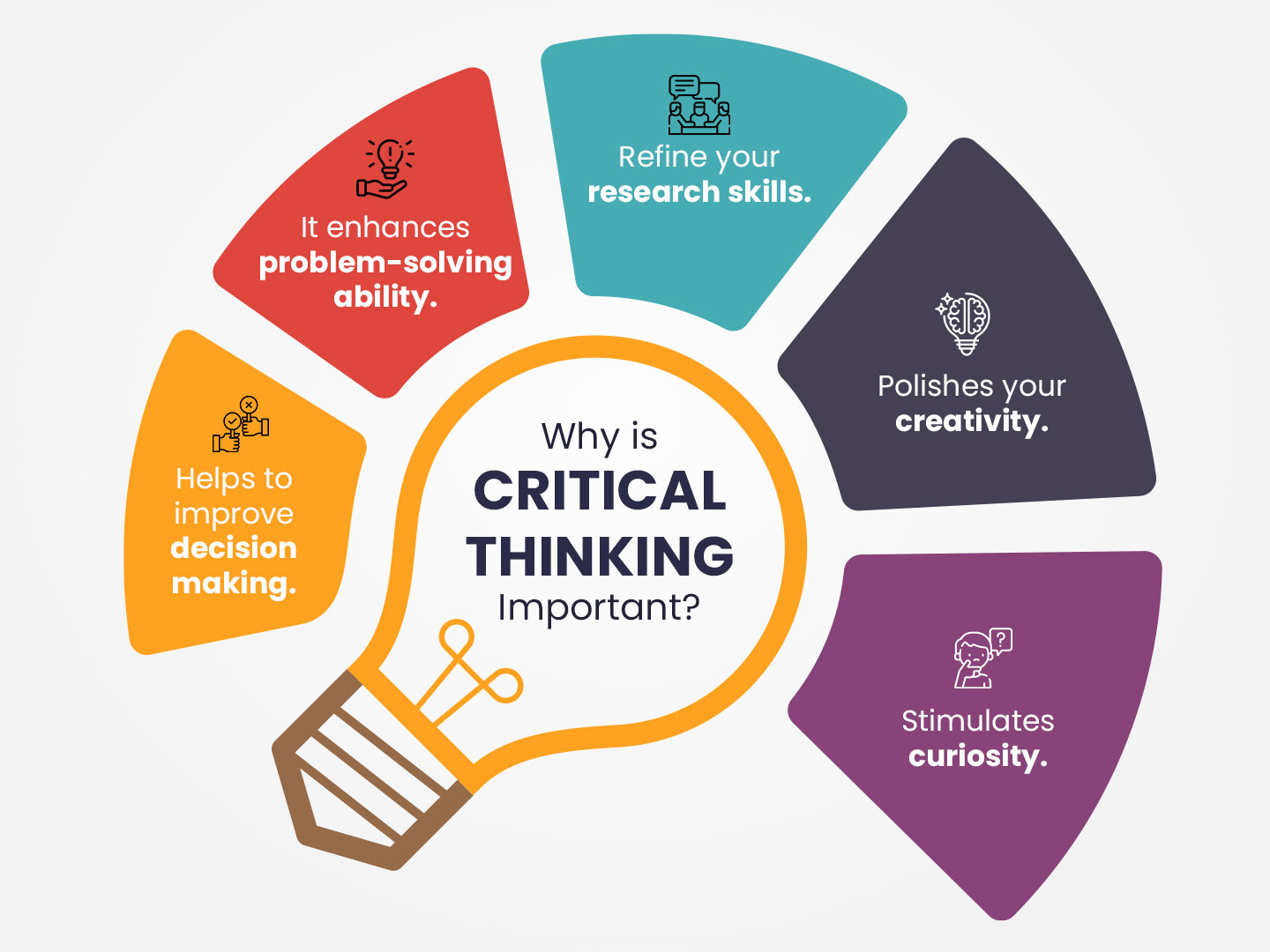
Suggested Reading : Guide to Developing soft skills for Interviews
How to Develop Critical Thinking Skills
Understanding how to develop critical thinking skills is essential for academic and professional success.
Critical thinking isn’t an innate ability. While some people possess critical thinking skills naturally, others can develop these skills through practice.
Use the information below and incorporate these habits in your professional and personal life to improve and develop your critical thinking skills.
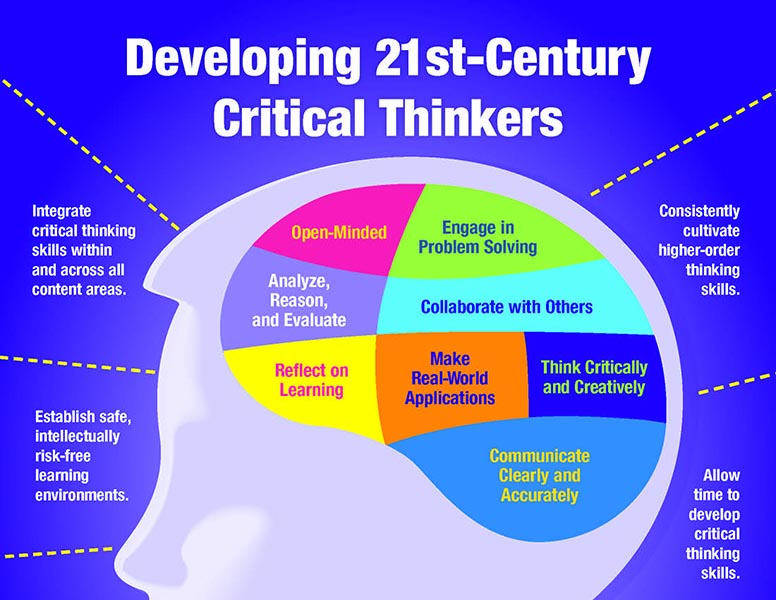
Questioning Assumptions
Critical thinking starts by questioning assumptions that have never been challenged before. By questioning assumptions, biases, and conventional wisdom, you can uncover hidden beliefs and connections that influence perceptions and decisions.
Make a habit of asking probing questions that require a more profound investigation of the information and consider alternative perspectives. This process increases intellectual curiosity and encourages individuals to think more critically about the world around them.
Incorporating a willingness to explore new ideas and perspectives into your daily life will greatly help you in knowing how to improve your critical thinking skills.
Active Listening
Communication skills and critical thinking skills go hand in hand. Active listening is a crucial part of critical thinking. It involves listening to others' viewpoints without judgment or preconceived bias, allowing for a better understanding of different perspectives.
Practicing empathy and open-mindedness in everyday life will enable you to approach conversations with curiosity and respect and promote meaningful dialogue and collaboration.
Engaging in constructive conversations and listening to different viewpoints can broaden one's perspectives and help one develop a more comprehensive understanding of complex issues.
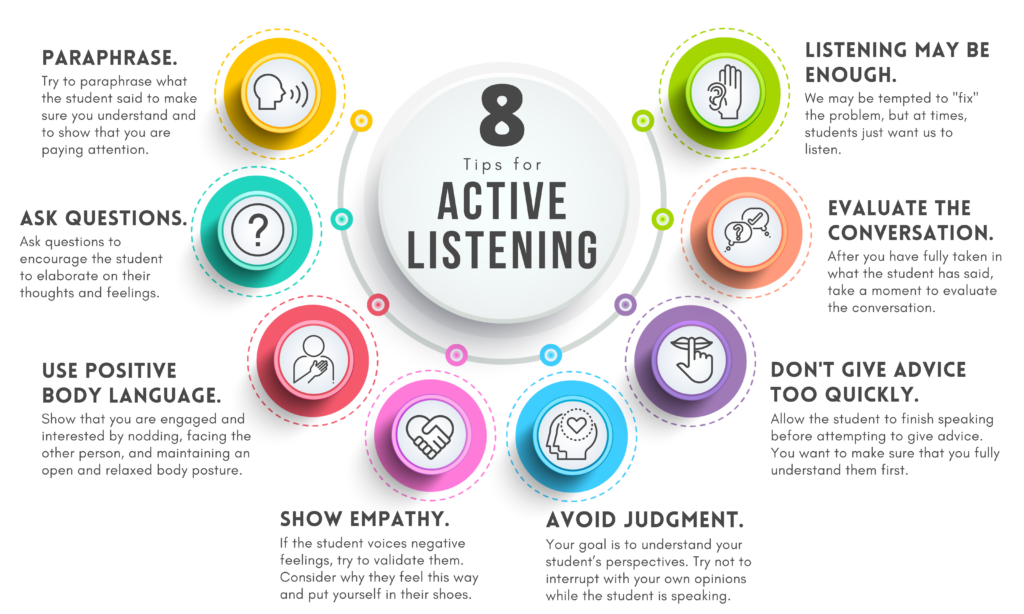
Seeking Diverse Perspectives
Seeking and understanding diverse perspectives is essential for developing critical thinking skills. Step out of your comfort zone and interact with individuals from different backgrounds, cultures, and experiences. This will increase your ability to understand the situations better.
Understanding different perspectives can enable you to find alternate solutions to a problem. Talking to people can help you understand why someone is doing something or why someone is doing it in a particular way.
Understanding that thinking will expand your horizons and allow you to approach problems in different ways. This will increase workplace collaboration, innovation, and creativity and enhance your critical thinking skills.
Analyzing Information
In today's information and misinformation world, knowing what information and data to trust and what to discard is crucial to critical thinking skills.
You must learn to evaluate and analyze the quality and relevance of information and distinguish between relevant data, fact, opinion, and misinformation.
To develop your analytical abilities, explore various critical thinking skills examples that can guide you in making informed decisions.
By developing these critical analytical skills, individuals can navigate complex information ecosystems more efficiently, equipping them to make informed judgments and decisions.
Creative Problem-Solving
Critical thinking goes beyond analytical reasoning to include creative problem-solving.
Practicing flexibility and creativity in your life will allow you to approach problems from new angles and explore unconventional solutions.
By thinking outside the box and experimenting, individuals can break their conventional thinking patterns and discover more innovative solutions to complex challenges.
Learning from critical thinking skills examples helps professionals across all industries enhance their problem-solving capabilities.
Solving problems creatively means being okay with taking chances and embracing uncertainty for better and more effective problem-solving and decision-making.
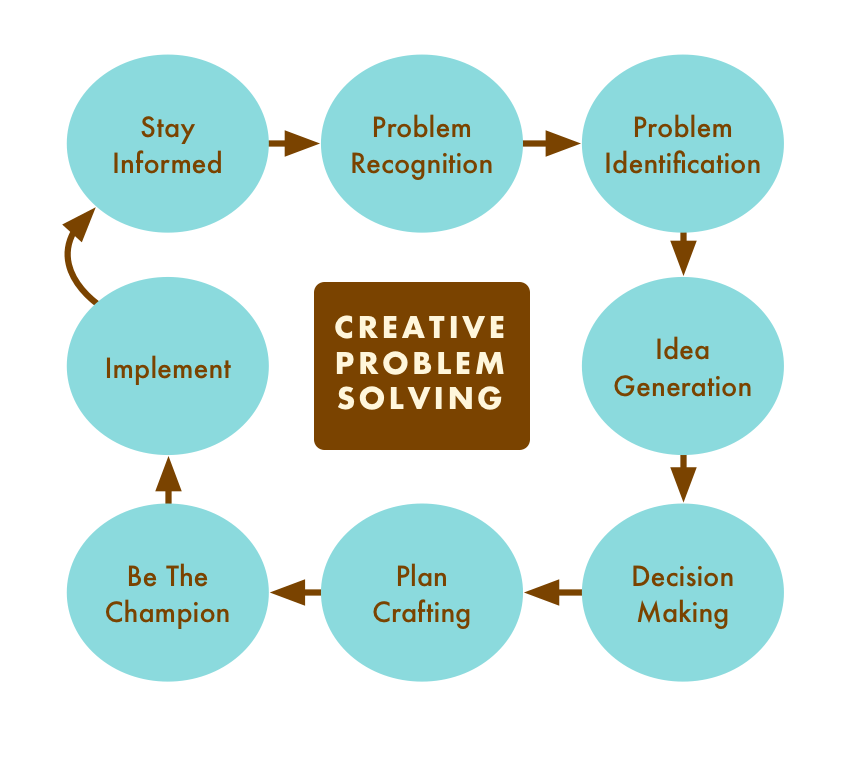
Reflective Practice
Reflection is a critical practice that develops advanced critical thinking skills. Reflection allows individuals to pause and examine their thoughts, actions, and decisions.
By reflecting on past experiences, individuals can identify patterns, biases, and areas for improvement.
Reflective practice makes you more self-aware and contributes to personal growth, enabling individuals to learn from their mistakes and succeed.
By incorporating reflection into their daily routines, individuals can cultivate a habit of continuous learning and improvement, enhancing their critical thinking skills over time.

Seeking Feedback
Seeking feedback from others is essential for developing and refining critical thinking skills.
Colleagues, mentors, and supervisors can offer valuable insights and perspectives you may have yet to consider.
Seek constructive criticism and use it as an opportunity for growth and self-improvement by identifying blind spots, challenging assumptions, and gaining new perspectives.
Actively seeking feedback can accelerate your personal and professional development, making you a more effective critical thinker and decision-maker.
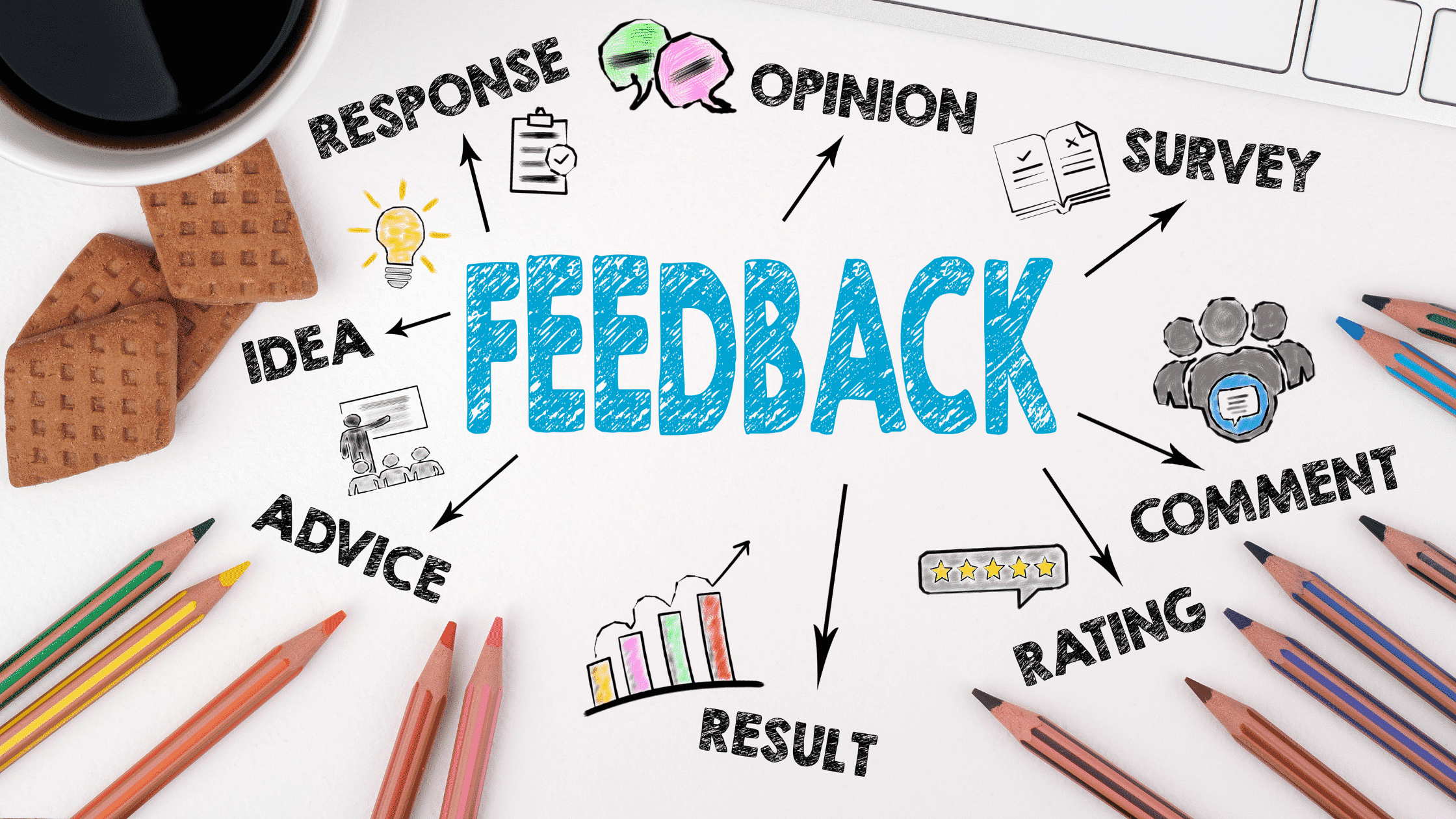
Conclusion
In conclusion, critical thinking is an essential skill set for everyone. It lays the foundation for solving complex problems, navigating projects, and making wise decisions in all aspects of your life. Learning how to improve critical thinking skills requires practice and reflection.
Questioning assumptions, seeking diverse perspectives, and analyzing information enable you to hone your critical thinking skills. By including these practices in your daily life, you can enhance your problem-solving abilities, make better decisions, and thrive personally and professionally.
In today's rapidly evolving world, where success hinges on adaptability and innovation, cultivating critical thinking skills is more crucial than ever.
It's not just about what you know; it's about how you think.
So, embrace the journey of critical thinking, expand your horizons, and unlock new possibilities for growth and success.
To widen your job search net, consider creating profiles on several top job portals in India. Upload your resume, create a job profile, and start your search for your dream job. Happy hunting.
So, try any of these top job portals in India listed in this article to kickstart your professional journey.
In today's competitive landscape, advancing your skills and mastering effective communication are pivotal for career growth and personal fulfillment. At Relinns Technology, we offer an exceptional platform to achieve these goals, featuring diverse career opportunities in both technical and non-technical domains. Our commitment lies in empowering you through hands-on projects and continuous learning, specifically enhancing your communication prowess. Join our team of dedicated professionals to contribute to groundbreaking projects and refine your skills in a supportive environment. At Relinns, we provide the guidance and prospects essential for crafting a successful career path in any field.

Frequently Asked Questions (FAQs)
How to improve critical thinking skills with practical activities?
Yes, various exercises and activities are designed to enhance critical thinking skills. These include brainstorming sessions to generate creative ideas, problem-solving exercises to analyze and address complex issues, and debates to explore different perspectives on a given topic. Engaging in puzzles, logic games, and analytical writing can help sharpen your abilities and promote deeper levels of reasoning and analysis.
How long does it take to develop critical thinking skills?
The time to develop critical thinking skills can vary depending on factors like prior experience, aptitude, and the level of commitment to improvement. While some individuals may notice significant progress relatively quickly, others may require more time and consistent effort to see results. Regardless of the timeframe, it's essential to approach the development of advanced critical thinking skills as an ongoing process that involves continuous learning, practice, and refinement.
Can critical thinking skills benefit my career?
Elevating advanced critical thinking skills is crucial in today's workplace for leveling up problem-solving, decision-making, and innovation. Professionals with adept critical thinking capabilities excel in analyzing complex situations, foreseeing challenges, and devising effective solutions. These skills not only empower individuals to adapt to evolving conditions but also to objectively evaluate information and persuasively communicate ideas. They are indispensable across diverse industries and professional roles, ensuring continuous growth and success.

